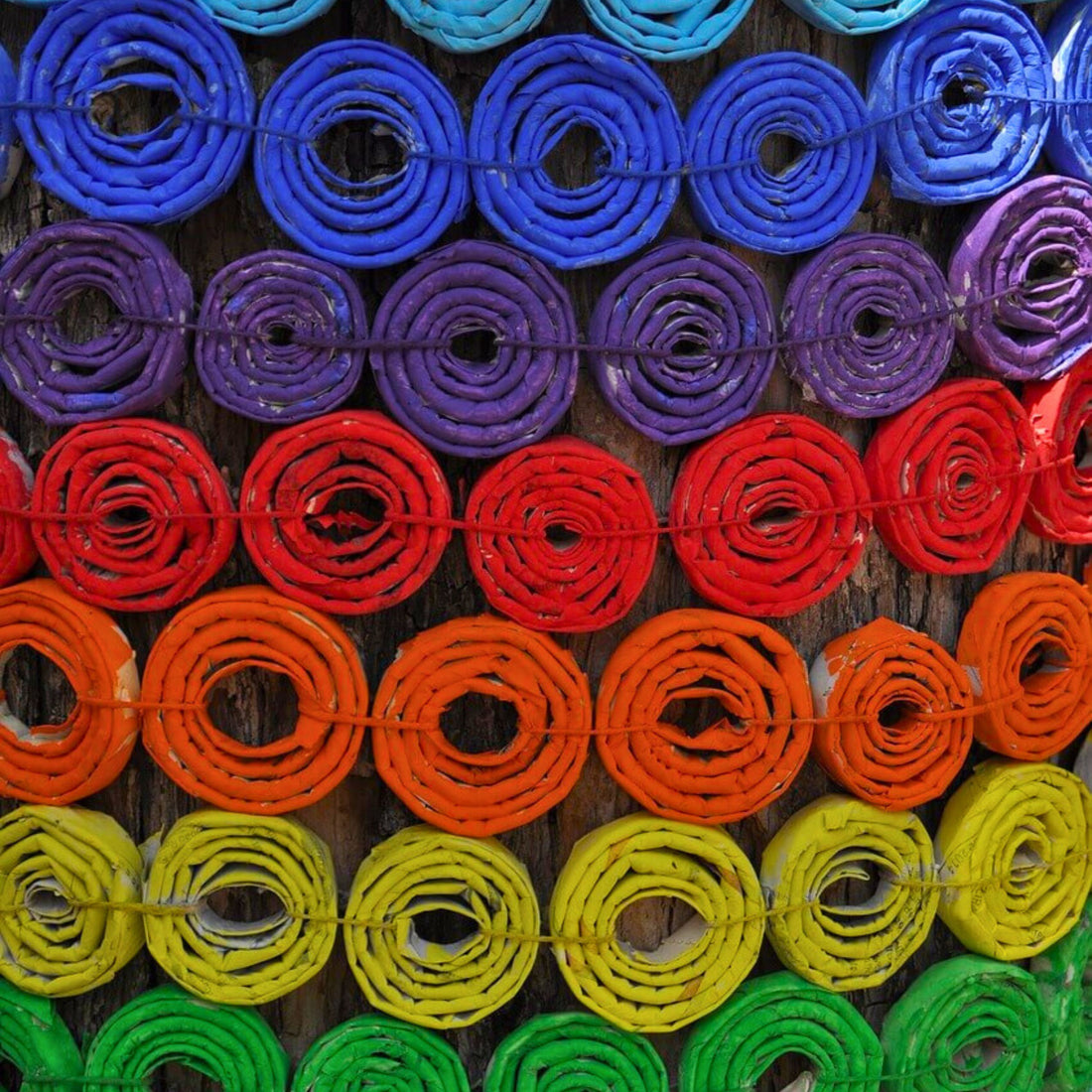"Home is where the heart is" - this phrase is so true. Home are an extension of our personality, and experiences. A well-loved home is not the one which has been decorated with trendy objects or colours, rather it is the one which gives us the feelings of comfort, privacy, sentiment and meaning. A home's vibe and atmosphere is all that truely matters.
If we want to decorate our home authentically, then the items we choose are to be selected based on what we like, and what we feel when we look / touch those items. Thus, you can't always create a welcoming space by shopping mass factory-produced goods. To open your space to ethical, upcycled items and to declutter to allow what is no longer required or loved is a liberation in itself.
Let's quickly look at the terms - declutter and up-cycle, and explore a bit about these concepts.
What is decluttering?
In today's era of globalisation, there is an abundance of goods flooding the market and sometimes, our homes. Decluttering refers to identifying the items we no longer want to put in our homes, and then making an effort to find them another home (example, Op Shops, sharing with neighbours).
How to decide what to declutter?
An important question is to decide what items to keep and what items to reject. This can be difficult to answer, but it is usually worth taking the time out and following through.
While deciding on decluttering, think about the items that are no longer in use or are too big for a space or better alternatives are available. For example, children's board games that are gathering dust can be shared with other families. Another example could be those cheese serving trays at the back of kitchen cupboard.
Any good condition item that may get more used at someone else's home than yours is generally a good item to declutter and share or donate. You will be surprised that the surplus garden stones you have, would find a welcome in your friend's green space! Join a community group to get in touch with your neighbours and get sharing. You can also make use of the local second-hand stores or charities like Vinnies.
What is upcycling?
Upcycling involves giving a new life to unwanted objects. It can be as simple as reusing your glass jars for making jams and sauces to upholstering a stool with a fresh padding and fabric.
Depending on what item is to be upcycled, it may demand attention from professionals or could be simple enough to DIY. In our shop, we have upcycled old sari cloths into chimes. This is fairly simple compared to the upcycling techniques used in hand-braiding and then stitching the Chindi rag rug.

Pic: Handmade Rainbow Chime. Textile strips cut from an old sari have been leveraged to lend a vibrant yet soft texture.

Pic: Round Chindi Rag Rug. This has been hand-knotted by master artisans. Textile waste has been upcycled to create this colourful piece.
For upcycling, you need not buy vintage or old items. You can find something in your own house (while decluttering), in your local op-shop, from a friend or curb side cleanup. Example, an antique side-table found unused at your parent's house can be given a modern touch with sanding and fresh coat of paint.
For consistent look in your space, choose a design style that you love. You can choose something different to mix-and-match with your existing space, or you can choose something similar to maintain a cohesive look.
Conclusion
Irrespective of the decor style that you have opted for your home, you can always add a bit of upcycled products that have reinvented old furniture or furnishings, and you can always benefit from decluttering. Sometimes, decluttered objects can also be upcycled! This makes the "new" & shiny so much more personal and unique.
For DIY ideas, recommend to browse the shelves of your local library, or TV shows and get creative. These projects will have so much power to satisfy your creative soul.

